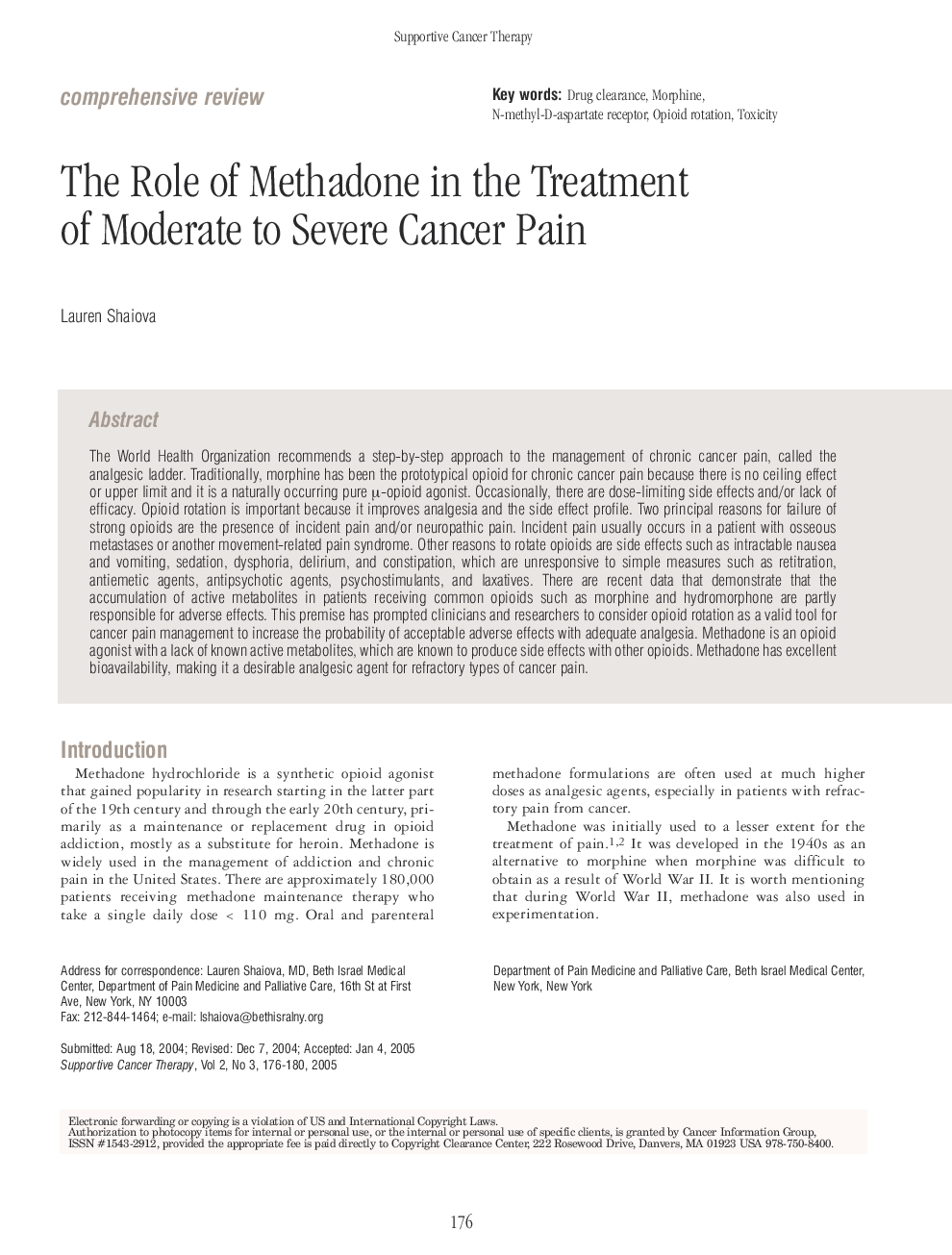| کد مقاله | کد نشریه | سال انتشار | مقاله انگلیسی | نسخه تمام متن |
|---|---|---|---|---|
| 9340502 | 1259159 | 2005 | 5 صفحه PDF | دانلود رایگان |
عنوان انگلیسی مقاله ISI
The Role of Methadone in the Treatment of Moderate to Severe Cancer Pain
دانلود مقاله + سفارش ترجمه
دانلود مقاله ISI انگلیسی
رایگان برای ایرانیان
کلمات کلیدی
موضوعات مرتبط
علوم پزشکی و سلامت
پزشکی و دندانپزشکی
تومور شناسی
پیش نمایش صفحه اول مقاله

چکیده انگلیسی
The World Health Organization recommends a step-by-step approach to the management of chronic cancer pain, called the analgesic ladder. Traditionally, morphine has been the prototypical opioid for chronic cancer pain because there is no ceiling effect or upper limit and it is a naturally occurring pure μ-opioid agonist. Occasionally, there are dose-limiting side effects and/or lack of efficacy. Opioid rotation is important because it improves analgesia and the side effect profile. Two principal reasons for failure of strong opioids are the presence of incident pain and/or neuropathic pain. Incident pain usually occurs in a patient with osseous metastases or another movement-related pain syndrome. Other reasons to rotate opioids are side effects such as intractable nausea and vomiting, sedation, dysphoria, delirium, and constipation, which are unresponsive to simple measures such as retitration, antiemetic agents, antipsychotic agents, psychostimulants, and laxatives. There are recent data that demonstrate that the accumulation of active metabolites in patients receiving common opioids such as morphine and hydromorphone are partly responsible for adverse effects. This premise has prompted clinicians and researchers to consider opioid rotation as a valid tool for cancer pain management to increase the probability of acceptable adverse effects with adequate analgesia. Methadone is an opioid agonist with a lack of known active metabolites, which are known to produce side effects with other opioids. Methadone has excellent bioavailability, making it a desirable analgesic agent for refractory types of cancer pain.
ناشر
Database: Elsevier - ScienceDirect (ساینس دایرکت)
Journal: Supportive Cancer Therapy - Volume 2, Issue 3, April 2005, Pages 176-180
Journal: Supportive Cancer Therapy - Volume 2, Issue 3, April 2005, Pages 176-180
نویسندگان
Lauren Shaiova,